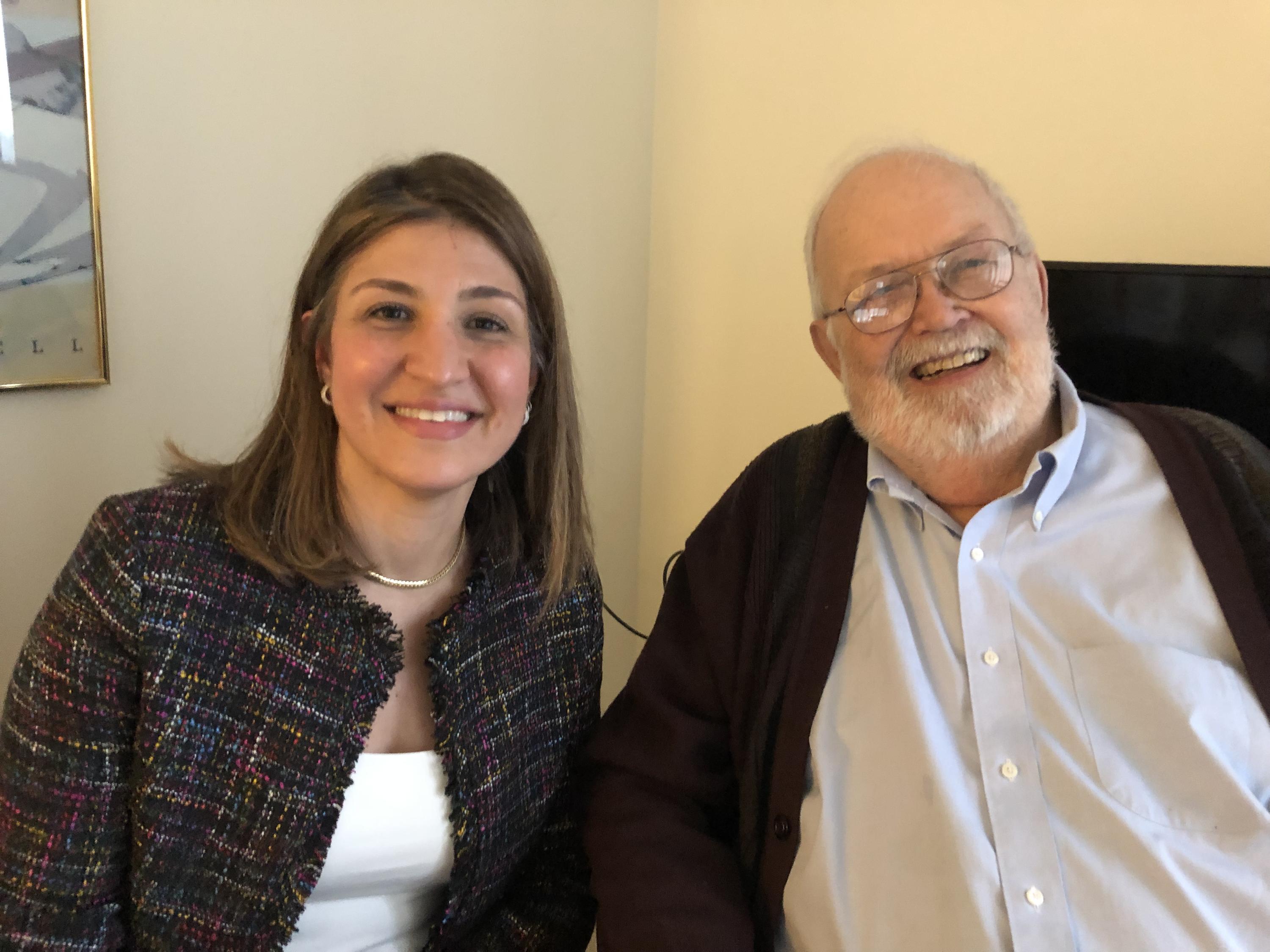The Department of Civil and Environmental Engineering at the University of Waterloo is home to the Urban Engineering initiative, which is introduced and developed by the Tursktra Chair in Urban Engineering.
The Turkstra Chair in Urban Engineering was established through the generous endowment by Carl Turkstra, and the creation of the chairholder in January 2019, held by Nadine Ibrahim.
Nadine Ibrahim
Nadine Ibrahim is an Associate Professor, Teaching Stream, in the Department of Civil and Environmental Engineering and holds the Turkstra Chair in Urban Engineering. She comes from a cross-section of industry and academia in the areas of urban infrastructure, sustainable cities, and sustainable development, in addition to engineering education scholarship and pedagogy. Nadine has taken an interdisciplinary approach to her education, where she holds a BASc (2000), MASc (2003), and PhD (2015) in Civil Engineering, and a Certificate of Preventive Engineering and Social Development, from the University of Toronto. Transcending the boundaries of Civil Engineering, she combines environmental engineering, and incorporates non-engineering fields including architecture, economics and governance. She was a post-doctoral fellow working on Engineering Education for Sustainable Cities in Africa, launching a “Sustainable Cities” course online, and piloting a Global Classroom.
Nadine has leveraged her industry experience to expand her inquiry into cities through urban and environmental projects in Canada and abroad. In Canada, she worked with municipalities in Southern Ontario on asset management, risk assessment, infrastructure planning, and capital budgeting. Her exposure to municipal engineering leadership and global industry best practices imparts transferable skills that she has excelled at, and applies them in academia to generate and seek collaborative opportunities to bring real world engineering leadership examples into the classroom, and with other disciplines interfacing with engineering. Abroad, in the Middle East and North Africa, she worked in international development on high profile and large-scale projects for clients including the World Bank and the Global Environment Facility. In 2010, she received the Early Career Award, in recognition of her work in tackling global challenges in diverse communities in need, and in introducing corporate social responsibility.
Nadine’s teaching portfolio at the University of Waterloo includes civil engineering systems, project management, decision-making, engineering design, and sustainable development taught to undergraduates in civil and environmental engineering. Her previous teaching experience includes engineering economics to undergraduates in civil and mineral engineering at the University of Toronto, and “Infrastructure for Sustainable Cities” in civil engineering, and “Infrastructure and Urban Prosperity” in the Master of Engineering in Cities Engineering and Management program. Her teaching experience at the faculty-level through the Engineering Communications Program, and Engineering Strategies and Practice have diversified her teaching methods. She also developed an online course on “Sustainable Cities: Adding an African Perspective” and previously taught a professional course on environmental entrepreneurship and social innovation.
Her research contributes to a wide spectrum of urban engineering fields and a broad range of global cities, megacities, and most recently megaregions, appearing in leading journals including Nature Climate Change, and the Proceedings of the National Academy of Sciences. She has been active in futures research on engineering education for the future and co-authored a book chapter “Educating Engineers for the Anthropocene” which appeared in the State of the World 2017: EarthED: Rethinking Education on a Changing Planet, published by the Worldwatch Institute in 2017. She currently chairs a special interest group on the Engineer of 2050 at the Canadian Engineering Education Association (CEEA).

Nadine Ibrahim (left) and Carl Turkstra (right)
Carl Turkstra
Carl Turkstra was a structural engineering educator and consultant. He was a licensed engineer in Ontario and Quebec. Carl held a BSc (1958) from Queens University, MSc (1960) from the University of Illinois, and a PhD (1963) from the University of Waterloo, in addition to diplomas from Université de Montreal (1979), and McGill University (1980). His academic career started as a Lecturer at University College at London University (1963-1965), and he returned to Canada as an Assistant Professor (1965-1971), Associate Professor (1978-1982), and Professor (1978-1982) at McGill University. He then moved on to become a Professor of Structural Engineering at Polytechnic Institute of New York in Brooklyn in 1982, in which he was also the head of the Department of Civil and Environmental Engineering from 1982-1985. He was a consultant for structural safety and reliability, and a contributor to professional journals on these topics, in addition to being the editor of the Structural Safety Journal starting in 1982. Among the many leadership positions he held throughout his career, Carl was the President of Montreal Structural Engineers, Chairman of the Canada Masonry Research Council, fellow of the Canadian Society of Civil Engineers and its Chairman in 1978-1979 (Montreal Section), and the American Society of Civil Engineers winning the State of the Art award in 1988. Prior to his death in 2022, Carl resided in Dundas, Ontario.